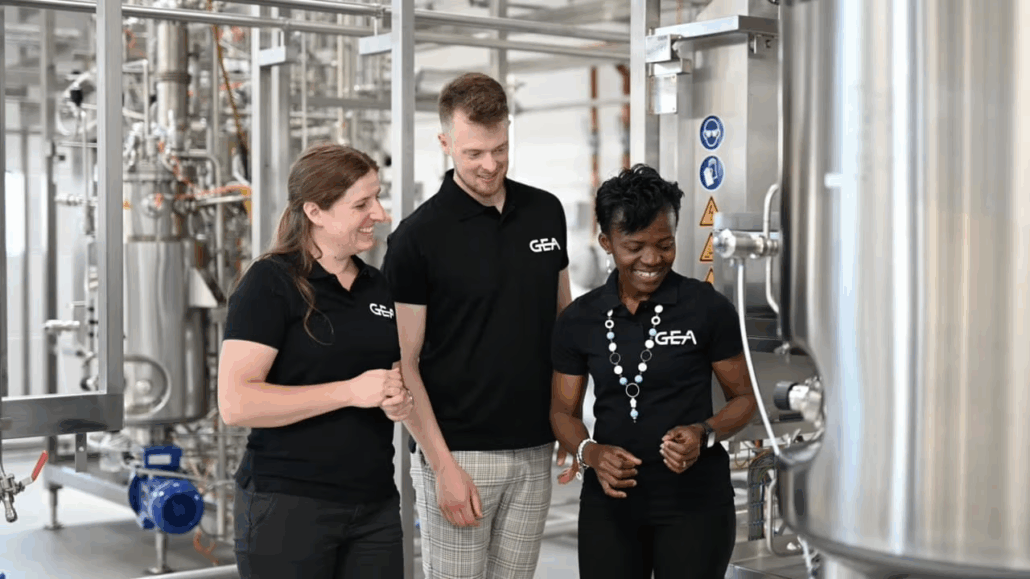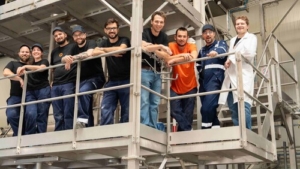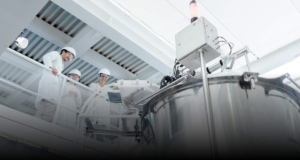
GEA to open food biotech pilot-scale facility in USA
GEA has launched its second Food Application and Technology Center (ATC) globally in the US, to target the largest consumer market for cellular agriculture. The facility features advanced bioreactors and precision fermentation systems that enable companies to test and optimise processes for producing alternative proteins and other novel food products.
Similar to GEA’s initial scaling facility for cell-based food production in Germany, the recently opened 10,000-square-metre facility in Janesville, Wisconsin is intended to assist scientists and entrepreneurs in the developing food technology sector to increase their production to industrial levels. With a 40% market share and a thriving start-up scene, the US is ahead of both Europe (30%) and Asia (20%).
In 2021, GEA made the strategic decision to build a multi-purpose facility in Germany where customers could optimise and scale up their fermentation and cell culture processes from laboratory to pilot scale, with a capacity of up to 500 litres. “Scaling up to pilot scale is sufficient to calculate parameter-based upscaling to industrial-scale plants,” Tatjana Krampitz, Head of Technology Management at GEA New Food, told European Biotechnology’s German-language sister journal |transkript in an interview. GEA is in a unique global position in this field because it manufactures around 90% of the necessary equipment for scaling within the process chain itself. This expertise enables reliable calculations of reactor geometry on an industrial scale.
The 10,000-square-metre centre is equipped with fermentation and cell cultivation units, as well as technologies for upstream and downstream processing, including high-shear mixing, sterilisation, filtration, and homogenisation.
The new facility in Wisconsin offers modular equipment that can scale from small laboratory tests to near-industrial production volumes, with bioreactors ranging from 50 litres to 500 litres. This flexibility enables users to experiment with various cell types, growth media and process parameters, thereby bridging the gap between initial laboratory trials and large-scale industrial manufacturing. Following successful scaling, companies receive a detailed evaluation to present to investors to obtain the necessary investment to scale up to production level.
According to GEA, the ATC welcomes a diverse range of companies, from start-ups to well-established players in the food industry. It provides them with the necessary tools and expertise to develop scalable, cost-effective food production processes. The ATC supports a variety of applications, including cultivated meat, precision fermentation, and alternative dairy and egg products.
The scaling plant in Germany is a successful project precisely because GEA exclusively contributes its plant expertise and is not interested in the biological IP of its customers or contract manufacturing. “It is important for us to be close to the customer during the scaling step. Where the customer’s production plant will be built is a completely different question – since we have a global presence, the location that the customer chooses for their production plant is irrelevant to us, i.e. wherever the conditions are best for them,” Sabine Reiner, Vice President of New Food at GEA, told European Biotechnology. In Europe, currently a map of commercial and state-funded scale-up facilities have been updated by the Biopilots4EU project.
In contrast to Europe, the approval process for novel foods in the US is fast, taking significantly less than a year from the date of application. The US food chain, which has suffered heavy losses in egg production due to bird flu, is particularly interested in producing egg substitutes without animals in fermenters. Most developers of egg substitutes, such as Just Egg, Zero Egg, The Every Company and Onigo Bio, are based in the US and Europe, where the largest consumer markets are located. A positive example from the Nordic region is the Finnish company Solar Foods, whose soy protein derived from biomass fermentation can also be used as an egg substitute.
GEA will host the grand opening of the ATC on 17 July 2025. The event will feature a ribbon-cutting ceremony, guided tours and technical sessions, including panels on the future of food innovation. Attendees will have the opportunity to engage with experts discussing topics such as fermentation and scaling up new food technology.


 Peter de Klerk from Must n Stum/PRNewsfoto/Revyve
Peter de Klerk from Must n Stum/PRNewsfoto/Revyve © EdiMembre/Merck
© EdiMembre/Merck Cyril Marcilhacy
Cyril Marcilhacy